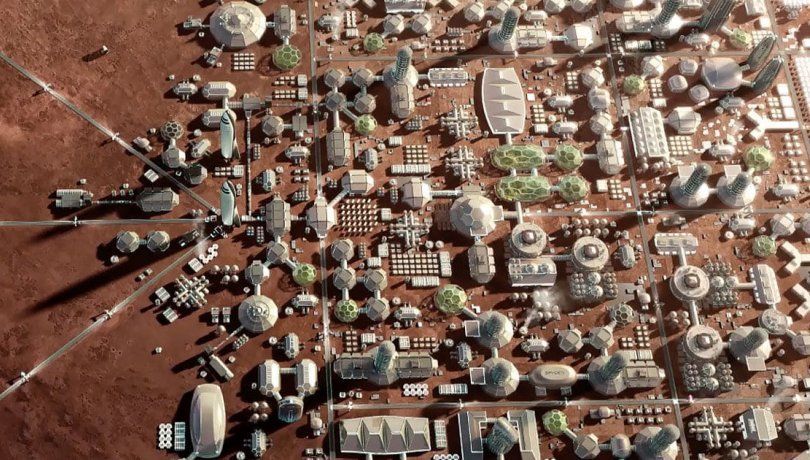The competition is focused on developing a city of one million people on Mars in a sustainable way.

What would a city look like on Mars? How would trade work? How would the urban population evolve? An international group of researchers including experts from the Institut de Ciències del Mar (ICM) of Barcelona imagined the Mars city NÜWA, detailed in a comprehensive project that includes scientific, engineering, architectural, economic and social aspects.
The proposal includes not only a feasible urban design, but also a socio-economic development plan, as well as high-level descriptions of the industry, infrastructure, generation and distribution of energy and services needed to make it a reality.
The project of the international team “The Sustainable Offworld Network" (SONet) has been selected as one of the 10 finalist proposals in the Mars City State Design competition of the Mars Society, the world’s largest and most influential space advocacy organisation dedicated to the human exploration and settlement of the planet Mars. The competition is focused on developing a city of one million people on Mars in a sustainable way.
Apart from the ICM, among the participants in the proposal are the researchers from the Institute of Space Studies of Catalonia (IEEC), the Institute of Space Sciences (ICE-CSIC), the Polytechnic University of Catalonia (UPC) and the Institute of Cosmos Sciences of the University of Barcelona (ICCUB). Participants from other countries such as the United Kingdom, Germany, USA and Argentina are also part of the team.
The finalist projects, selected from over 175 proposals, will be publicly defended on 17 October 2020 at the Mars Society Convention. Five proposals will finally receive an award. The defense will be public and shared via streaming around the world via Facebook live.
The SONet proposal consists of a 20-page long report with a conceptual design combining a wide range of aspects, from space exploration to sustainability. The city, called NÜWA in honour of the Chinese goddess who created humanity, symbolises the beginning of a new era of our civilisation on Mars and the protection that must be ensured in such an inhospitable world.
"The proposal is an effort to combine many disciplines in a way that is not usually done in space projects. In addition to scientists and engineers, we wanted from the very beginning to incorporate experts in other disciplines and from outside the academic sector", explains Guillem Anglada-Escudé, researcher at ICE and coordinator of the team.
From the ICM, Laia Ribas, co-author of the project, states that “This initiative allows to create multidisciplinary studies to achieve the development of human activities on other planets. Thus, it is required to evaluate and understand the physiological alterations of the living organisms and cultured species, such as fish, for human consumption in the extraterrestrial ecosystems”.
Finally, the researcher adds that “living in Mars planet requires social services that go from hospitals to universities and recreation parks, giving us an opportunity to build an egalitarian society which everyone is important and gender bias is abolished”.
The project was forged during online meetings in April, May and June 2020 in the midst of the confinement due to the COVID-19 pandemic. Now, the proposal has borne fruit. "Reaching the final is already a great success for the whole team", explains Miquel Sureda, lecturer of aeronautical engineering at The School of Industrial, Aerospace and Audiovisual Engineering of Terrassa (ESEIAAT- UPC). "We hope the competition will provide us with the visibility we need to gather support and develop concepts related to both space and sustainability, and the necessary transformation of the productive system that we must also face here on Earth".